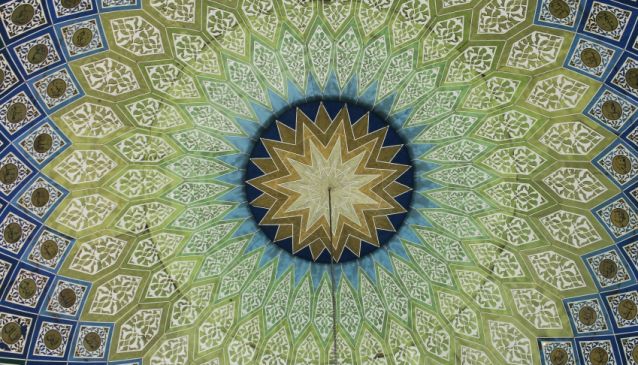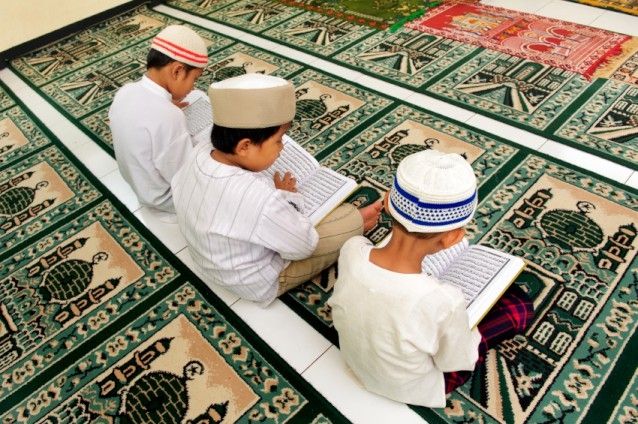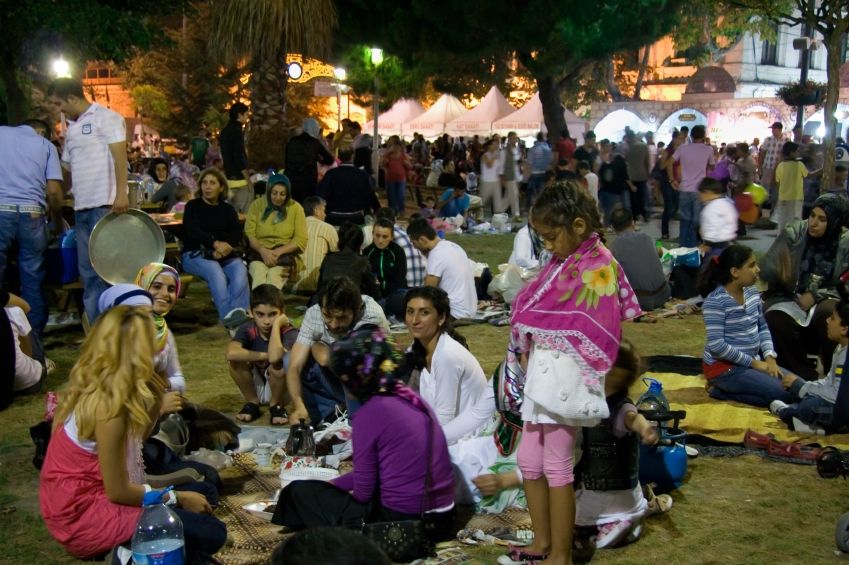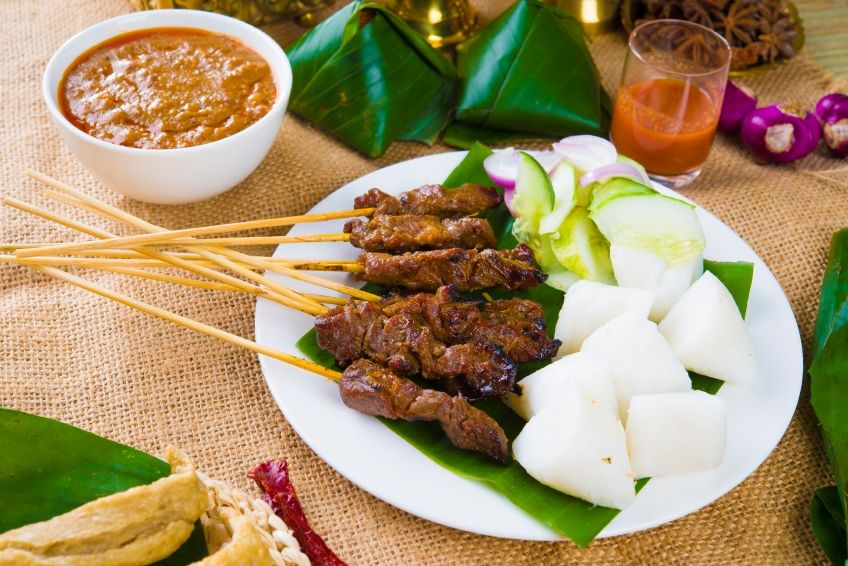It's Fasting Month, but it's Tourist Business as Usual

In the secular western world, religious ritual today is usually a private matter, conducted by the faithful in their homes and places of worship. It’s different in much of the Muslim world and distinctly so in Lombok, where 80 per cent of the people are Muslim. Ramadhan is a daily presence everywhere.
Ramadhan lasts one lunar cycle, 29 or 30 days and nights. It is a time for self-reflection and abstinence, including fasting between dawn and dusk. It is meant to strengthen the spirit and the body by denying oneself pleasure or more than minimal sustenance.
Fasting in Islam does not just consist of refraining from eating and drinking, but from every kind of selfish desire and wrong-doing. The fast is not merely of the body, by denying it sustenance, but more importantly also that of the spirit. The physical fast is in that sense a symbolic outward expression of the real inner fast.
It’s not a strange ritual – or it shouldn’t be. Christians remember that Jesus fasted for 40 days and nights and that Moses did the same, both seeking to become closer to God. Both Jesus the Messiah (Isa al Mahdi) and Moses (Musa) have a place in Islamic liturgy and tradition. Muslims, Christians and Jews are People of the Book (The Old Testament).
In the great eastern religion of Buddhism, Buddha fasted and this practice is followed today. Balinese Hindus, many of whom live in Lombok, fast over Nyepi, their “New Year”.
Even the most formal requirements of Ramadhan can readily be understood by Christians who follow (or know about) the strict rules of Lent, the 40-day period that leads up to Easter. In a predominantly Muslim place like Lombok, where people of all faiths live in harmony, these are important things to remember.

Boy's reading the Quran
Visitors during Ramadhan who are not fasting do well to remember too that the waiter or waitress who serves your breakfast, lunch or dinner will be hungry. They’re happy to serve you, of course. They are depriving themselves of normal life practices for religious purposes and don’t expect that of others who are not of their faith.
But they deserve your respect and consideration. Some resident foreigners and Indonesians of other faiths – including among Lombok’s large Hindu community – avoid eating and abstain from smoking and other recreational behaviour in public places during fasting hours. It’s a courtesy that’s appreciated.
In tourist areas in Lombok – Senggigi, the Gilis, Sekotong and Kuta in the south and in Mataram’s central business district – hotels and most of the street and beach warungs are open during daylight hours throughout Ramadhan.
Things may be different in areas that aren’t yet on the mainstream tourism map. They won’t have tourist-specific facilities. It could be difficult to find a warung that’s open and it’s better to take your own snacks with you. Eat them discreetly.
But if you’re in Lombok during Ramadhan doing the things most visitors do you most likely won’t see any difference from any other time of the year.
Cultural and environmental tours continue to operate, shops and places of entertainment are open, and of course adventure tourism goes on as usual.
You won’t miss out on your diving or snorkelling, mountain or forest trekking, souvenir buying or bargain hunting – or anything else that Lombok’s entrepreneurial tourism sector has to offer.

Families and friends break the fasting together
What Ramadhan Means
SELF-CONTROL: Developing and strengthening an individual’s powers of self-control, so that they can resist wrongful desires and bad habits and therefore “guard against evil”.
FASTING: By refraining from the natural human urges to satisfy one’s appetite, an individual exercises his or her ability of self-restraint, so that they can then apply it to everyday life to bring about self-improvement.
CLOSER TO GOD: By applying the rules of Ramadhan and observing the rites associated with the Fasting Month, an individual attains nearness to God so that He becomes a reality in that person’s life.
MINDFUL OF OTHERS: Among other things, this teaches an individual to refrain from usurping other’s rights and belongings. In fasting an individual voluntarily gives up even what is rightfully theirs; in these conditions, how can an individual even think of taking what is not theirs?
CHARITY: Ramadhan is also important for as a lesson in charity and generosity. The deprivation of fasting makes an individual sympathize with the suffering of others and want to alleviate it. Also, it helps an individual remember the blessings of life which are normally taken for granted.

Once the sun sets everybody eats together
The Essential Facts
Ramadhan is the ninth month of the Islamic lunar calendar. Muslims worldwide observe this as a month of fasting.
This annual observance is regarded as one of the Five Pillars of Islam.
The month lasts 29–30 days based on the visual sightings of the crescent moon.
The word Ramadan comes from the Arabic root ramiḍa or ar-ramaḍ, which means scorching heat or dryness.
Fasting is fard ("obligatory") for adult Muslims, except those who are ill, travelling, pregnant, breastfeeding, diabetic or going through menstrual bleeding.
Fasting the month of Ramadhan was made obligatory (wājib) during the month of Sha'aban, in the second year after the Muslims migrated from Mecca to Medina.
While fasting from dawn until sunset, Muslims refrain from consuming food, drinking liquids, smoking, and engaging in sexual relations; some interpret the rules as also forbidding swearing.
Food and drink is served daily, before sunrise and after sunset
Muslims believe the thawab (rewards) of fasting are many, but are multiplied during Ramadhan.
Something need correcting? Contact us

Dates are enjoyed by many during Ramadhan